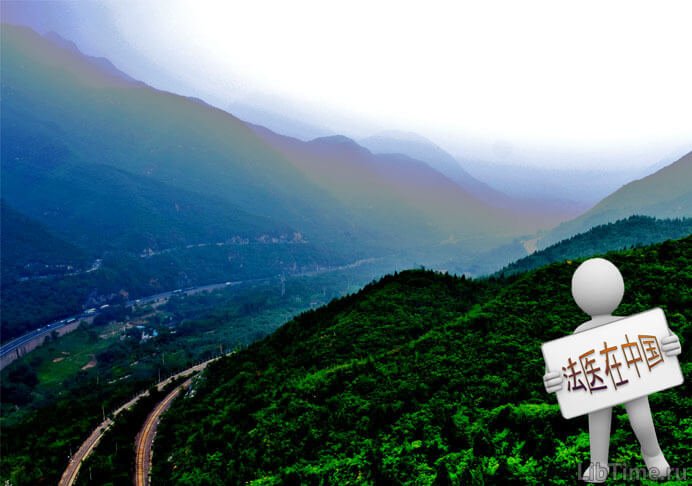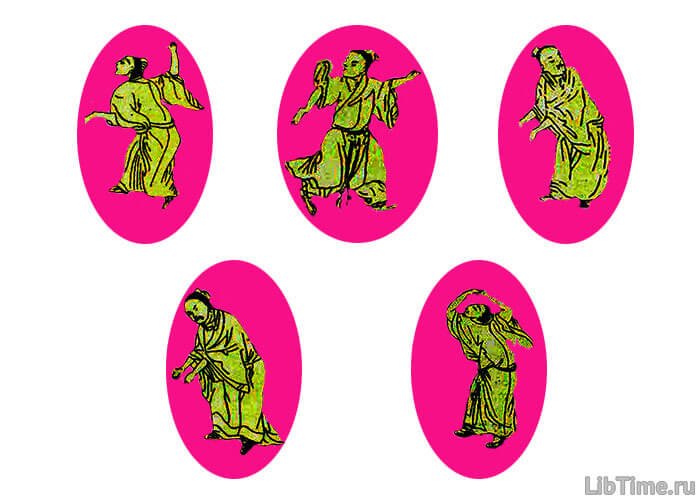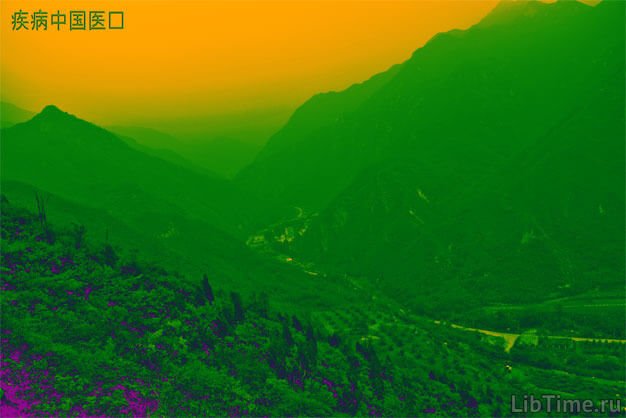Chinese medicine treatment
The opinions of historians coincide in the fact that Chinese medicine treatment was noted in the epoch of primitive communal system. Archaeologists find confirmation of this position in the oldest monuments of material culture of China, and in the legends of this country.
Healing in China
The legendary Fushi, whose reign is supposedly dated to the beginning of the 3rd millennium BC, according to legend,
cognized the movement of the celestial luminaries, defined the masculine and feminine "yang" and "yin", invented writing, taught how to build buildings, make coffins and crypts. He was the first to know the alternation and properties of the four seasons, realized that cold in winter and heat in summer can be harmful, and therefore taught people how to maintain their internal vital air and blood, advised to refrain from any excesses, to use food and drink carefully, in moderation. He taught people how to treat diseases through the use of medicines, as well as the first necessary rules of hygiene and nutrition.
There is also evidence that healing in China was known to the Chinese already in the matriarchy era and represents the most ancient section of their medicine. At the same time, healing is also the most developed area of medicine, as it requires the application of all theoretical constructions.
Treatment requires the fundamentals of diagnosis, observation and generalizations of a pharmacological nature. Before proceeding to the presentation of treatment methods, we should at least briefly outline the general principles of medical practice of ancient Chinese medicine:
- The principle of interrelation of the external environment, living conditions with the state of the human organism;
- the principle of strict individualization of treatment;
- complexity of therapy;
- consistency, purposefulness in carrying out therapeutic measures;
- the patient's faith both in what is prescribed to him and in the doctor himself.
Interrelation of the external environment with the state of the human organism
The first in its importance and universality is the principle of interrelation of the external environment, living conditions with the state of the human organism. Human life, say the classics of Chinese medicine, takes place in certain conditions. Well-being and health depend on them. In them one should look for the causes of disease, as well as the means to combat it.
This essentially materialistic position has received a peculiar interpretation already in the most ancient folk legends telling about the origin of the world.
Since the sky was pure,
- says the Book of Changes, -
and the earth was fruitful, the first people had enough food to eat, breathed clean air, villages were sparse, peace reigned everywhere, and therefore no one knew disease at that time.
Despite the naivety of such explanations, they are very interesting. Legend says that the fantastic hero-"great master" Pan-Gu (by no means a god or a holy spirit), who created the universe, lived 17 thousand 200 years, and ordinary people lived then up to 200 years.
Diseases, according to the same legends, appeared when the earth began to deplete, the air became polluted with harmful vapors as a result of excessive crowding of people, wars, feuds, and famine.
The principle of strict individualization of treatment
The principle of strict individualization of treatment is put forward. All the variety of environmental phenomena - time of day and year, all kinds of climatic and meteorological conditions - the air a person breathes, the food and drink he consumes, the dwelling in which he lives - as well as internal data (inclinations and temperament, age, etc.) must be taken into account.
( Chinese climatological terms are peculiar. One is "fing-shui" meaning "air-water", another is "shui-tu" meaning "earth-water". These definitions reflect the importance of air, earth, and water to humans). This is a rule that Chinese medicine has adhered to throughout its history. And its rationality is beyond any doubt. The practical application of this principle can be characterized as follows:
For the same disease in different people can not be applied completely the same therapeutic means, the same doses of drugs, everyone must be treated in his own way. Chinese medicine treatment has a basic rule: It is necessary to take into account all the symptoms of the disease.
Individuality of each patient
The individuality of each patient is first of all manifested by the special symptomatology of their disease. At the same time, each symptom has its own origin (its own pathogenesis). According to the main authorities of Chinese medicine, symptomatic treatment most of all meets the requirements of individualization of the therapeutic process, therefore it is pathogenetic.
No matter how much the symptoms change, as much as the therapeutic prescriptions need to be changed. For this reason, medicines are prescribed for no more than three days, and in some diseases this period is reduced to two or even one day.
Treatment with Chinese medicine. Complexity of therapy
Combining symptomatic treatment in all possible cases with the effect on the cause of the disease, doctors of Chinese medicine always adhere to the complexity of therapy.
It consists in simultaneous application of various methods (therapeutic regimen, diet, gymnastics, massage, zhenqiutherapy, etc.), as well as in prescribing such a combination of drugs that would ensure the effect on the main and side causes of the disease.
All this allows us to evaluate from a completely different point of view the unaccustomed for us unwieldiness of complexes of Chinese medicine therapy. Dozens, ingredients of any Chinese medicine is not yet a proof of helpless empiricism, as some researchers claimed.
It is to some extent a practical expression of the principle of comprehensiveness in treatment and is based on the established synergism of certain medicines by experience.
The concept of "medicine" in Chinese medicine
The concept of "medicine" in Chinese medicine is interpreted very broadly. It can refer to everything
existing in the world space, including space itself, if only the body needs it.
In the desert, they say, people die of thirst, and there is no better medicine there than ordinary water; in the snows of the Himalayas people die of cold, and the most effective in this case is heat.
Consistency, purposefulness in carrying out therapeutic measures
Consistency, purposefulness in carrying out therapeutic measures, which, except only in emergency cases, should not be carried out hastily - this is another principle of Chinese medicine. It is based on two main very rational provisions:
- The main role in the fight against disease belongs to the body itself, and all therapeutic means and methods are designed only to help it in this, therefore, it is not necessary to replace the protective forces of the body, deprive it of time and opportunity to mobilize them (for this reason, it is recommended to resort to surgical intervention when absolutely necessary).
- The doctor can make a decision only on the basis of reflection on all the data available to him, collected by all the means available to him. Only then will he begin treatment with proper preparation. Otherwise, as the Chinese wisdom says, the physician will be like a man "shooting arrows in the dark". It is not by chance that Chinese national physicians, before making a diagnosis and prescribing treatment, usually seclude themselves for the so-called "inner conversation" and check their assumptions on various books.
Faith of the patient both in what is prescribed for him and in the doctor himself
And there is another very interesting principle of treatment. It concerns the faith of the patient in both whatis prescribed for him and in the physician himself. The task of the latter is to arouse in his patient an active desire for recovery. And for this purpose.
the doctor's words must correspond to his deeds and actions.
As we can see, the treatment of Chinese medicine in many respects corresponds to modern views, it is a key to understanding the basic therapeutic methods, practical techniques and means that Chinese doctors have been using for thousands of years.


